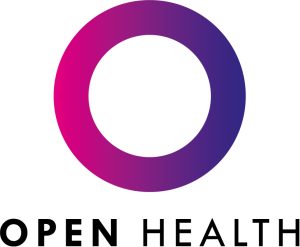Novel Oncology Therapies Require Innovative Methods in Oncology Modeling
May 16, 2023 |
Innovative methods in oncology modeling are needed to demonstrate the value of many new cancer treatments, including immuno-oncologic therapies.
Innovative methods in oncology modeling are needed to demonstrate the value of many new cancer treatments, including immuno-oncologic therapies.
Health technology assessment (HTA) agencies have long required evidence of long-term survival and lifetime estimates of quality of life before they will approve new treatments. Health economics and outcomes research analysts have relied on standard parametric models to extrapolate overall survival rates from clinical trial data to estimate quality of life.
This traditional approach identifies the statistical models that best fit the available data and then uses these models to predict outcomes over the lifetime. It worked well for traditional cancer treatments, including chemotherapy. However, many new oncology drugs have a different mechanism of action—including the possibility of delayed and prolonged response to treatment and, potentially, cure—which may not be accurately represented by these traditional models.
Applying standard models to novel oncology therapies may lead to inaccurate estimates of survival and/or quality-of-life benefits, which could cause HTA agencies to reject beneficial treatments. For patients to access potentially lifesaving medications, analysts need to use more sophisticated modeling methods that can accommodate the potentially complex hazard patterns associated with these treatments.
Choosing an oncology modeling method
Newer methods and techniques may better capture the potential value of innovative oncology treatments.
The appropriate modeling method can provide the foundation for an accurate assessment of the benefits associated with novel oncology therapies—a crucial step in gaining regulatory approval and getting treatment to those who need it. However, determining which model to use can be challenging.
In January 2020, the National Institute for Health and Care Excellence, Decision Support Unit issued Technical Support Document 21 (TSD 21), a guide to flexible methods for survival analysis. This document suggested some innovative modeling approaches, including cure models, mixture modeling, piecewise models and landmark approaches, and encouraged careful consideration of the tradeoff between short-term fit versus long-term assumptions. These newer methods aim to more accurately estimate the value of new drugs in terms of cost, life years and quality of life.
TSD 21, however, did not specify when—or under which circumstances—specific models should be used.
At present, guidance is limited as to when flexible models should be considered, and which might be most appropriate for a particular data set. An advisory board of seven international experts with in-depth knowledge of survival analysis and health technology assessment collaborated over the summer of 2021 to produce an algorithm that can be used to inform selection of flexible survival oncology models.
The algorithm, which consists of eight steps and four questions, was published in Value in Health journal in August 2022. It provides a systematic, evidence-based approach to justify the selection of extrapolation models for immunotherapeutic cancer medications, and, if followed, should reduce the risk of selecting inappropriate models that may underestimate the benefit of novel treatments.
Oncology modeling continues to play a vital role in determining (and demonstrating) the value of new cancer treatments, but traditional methods aren’t a good fit for new drugs that have prolonged responses. Flexible extrapolation models offer a better estimate of the value of new drugs. They offer cost-effective analyses of cancer immunotherapies and other innovative oncology therapies.
At OPEN Health, we use advanced survival modeling techniques as needed to demonstrate value. Our multidisciplinary teams have deep knowledge of oncology modeling and routinely help pharmaceutical companies navigate health technology assessments and joint clinical assessments.
Learn more about OPEN Health: https://www.openhealthgroup.com/
This content was provided by OPEN Health
Company Details
Latest Content from OPEN Health
OPEN X Health launches to provide data-driven creativity to the pharmaceutical industry
OPEN X Health launches to provide data-driven creativity to the pharmaceutical industry
OPEN Health Appoints Steven Duryee as Chief Operating and Transformation Officer
OPEN Health Appoints Steven Duryee as Chief Operating and Transformation Officer
Unlock possibilities: A Medical Affairs strategy fit for the future
Explore the key areas to include in a Medical Affairs strategy and plan that is fit for the future in our latest whitepaper.
OPEN Health and Nested Knowledge announce strategic research collaboration to leverage AI technologies for evidence synthesis
OPEN Health and Nested Knowledge announce strategic research collaboration to leverage AI technologies for evidence synthesis
OPEN Health unites patient engagement experts to transform the patient experience
OPEN Health, a preeminent global provider of consulting, HEOR and market access, patient engagement, and scientific and creative communications services, is bringing together experts in strategic patient innovation and engagement,...
The right measurement frameworks matter for demonstrating treatment efficacy in clinical trials for Alzheimer’s Disease
The right measurement frameworks matter for demonstrating treatment efficacy in clinical trials for Alzheimer’s Disease
OPEN Health Presenting Innovative Research on Capitalizing Data for Patient Access at ISPOR Europe
OPEN Health Presenting Innovative Research on Capitalizing Data for Patient Access at ISPOR Europe
Dom Marchant, Chief Creative Officer, joins the executive leadership team at OPEN Health with a new vision to drive the creative communications practice
Dom Marchant, Chief Creative Officer, joins the executive leadership team at OPEN Health with a new vision to drive the creative communications practice
Embracing the Patient Voice Within Publications
This whitepaper will explore multidisciplinary perspectives on how we can better engage patient communities in publications to optimize the value of their contributions, while navigating any uncertainties and reluctance from...
Navigating the nocebo effect through patient engagement is the key to setting patients up for success
If you're interested in delving deeper into this topic and understanding how patient engagement can effectively navigate the nocebo effect, we invite you to explore our latest whitepaper.





